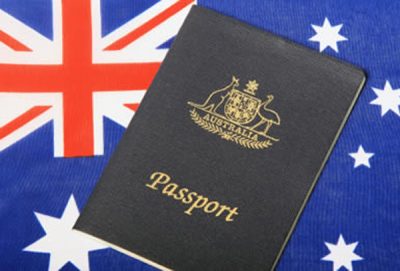Strafing Parliament: Australia’s High Court Citizenship Ruling

And they fell like ninepins. Weeks of predictions, optimistic readings, and hopeful signs were dashed as the members of the highest court of Australia laid waste to members of Parliament. Citing a section in the Australian constitution that has become something of a heavy footnote in popular consciousness, the judges ruled five out of seven applicants ineligible to sit in Parliament.[1]
The applicants have come to assume a title more commonly associated with criminal gangs or wrongly accused terrorists: the Citizenship Seven. But of the seven, only Senators Matt Canavan and Nick Xenophon survived. Barnaby Joyce, the Deputy Prime Minister, Fiona Nash, Larissa Waters, Scott Ludlam and Malcolm Roberts all became confirmed victims of section 44(i).
That section, read strictly, is onerous in application, making ineligible anyone “under any acknowledgment of allegiance, obedience, or adherence to a foreign power, or is a subject or a citizen or entitled to the rights or privileges of a subject or a citizen of a foreign power”.
It had been a true battle. Submissions varied. Joyce and Nash had suggested that s. 44(i) required that a foreign citizenship be actually chosen or maintained, its “essence,” noted the judges, being “knowledge of the foreign citizenship”. Ludlam and Waters insisted that a person be “put on notice” where the person is alerted to “primary facts” of possessing citizenship of another country.
A third, one advanced by Canavan, Roberts and Xenophon, was that foreign citizenship be voluntarily obtained or retained. This enabled a distinction to be drawn between naturalised Australians and “natural born” Australians.
The former placed the onus on the naturalised Australian to have taken all reasonable steps to renounce citizenship of another country. The latter would be disqualified if he or she took active steps to acquire a foreign citizenship or, after acquiring knowledge of that citizenship, did not take reasonable steps to renounce it.
The High Court, much against the spirit of any true widening of the section’s purpose, kept matters narrow. Constitutional history suggested no need to change that stance. As for the impact of a foreign law, that, in of itself, could never determine the operation of the disqualification provision. Fine words in theory, but in practice, a far from easy proposition.
A notable limb of reasoning in the judgment was its dismissal of the mental element of the potential parliamentarian. The section made no reference to the state of mind, and investigating “the state of mind of a candidate” was undesirable to the stability of the process.
What, then, of the survivors? Xenophon was spared the cull as he was not truly a “subject or citizen of a foreign power” or entitled the rights and privileges of one. His foreign citizenship was “residual” in nature, one rooted in British practice towards overseas territories – in his case, Cyprus. He was neither a subject nor a citizen of a foreign power for the purposes of the section.
Canavan was similarly graced by the good will of the court.. When he was born, the court noted, his parents and grandparents were Australian citizens and only Australian citizens. As for the senator, never one to be entirely honest in press conferences on his background, he had never visited Italy nor taken steps to acquire Italian citizenship. The court, fortunately for Canavan, took the view that registration of Italian citizenship was different to a declaration of it, effectively meaning that the right to it lay dormant.
The Prime Minister, Malcolm Turnbull, had had moments of hope over experience in claiming that the High Court would give a clean bill of constitutional health to his deputy. His statements prior to the court ruling came close enough to a directive, a point that would not have been missed by the judicial officers. What transpired was a predictably conservative ruling.
The sense that Australians, certainly those with dual citizenship, have received a good blow is palpable. The expert commentary on the section certainly point to its archaic formulation, one that takes aim at diversity in favour of one citizenship. Adrienne Stone, director of the Constitutional Centre for Comparative Studies, feels that such an eligibility requirement should be inapplicable in a multicultural society.
“We would be missing out on terrific representatives. But also it’s a matter of the most basic fairness that people ought to be able to contribute or participate on equal grounds.” Waters similarly backs the point that the reading of section 44(i) “would eliminate a good half of our population from running for Federal Parliament.”[2]
The other side of the coin is a less forgiving one. The paperwork on background, familial links, and efforts to renounce, were not done in five cases, and convincing Australians that a constitutional amendment to permit dual citizens to sit in the highest chambers in the land is not one that will fly easily, should it even grow wings. The electorate’s kindness only extends so far.
The only possible textual change will have to be by a mechanism of a double requirement: a majority of electors in a majority of states and a majority of the country, a truly high bar to satisfy.
Referenda have a habit of dying in brave efforts to cross the line – a mere 8 out of 44 seeking to amend the constitution have succeeded, the last being 1977. As constitutional law professor Anne Twomey rightly notes,
“It is not the sort of thing that people march on the streets for.”
Dr. Binoy Kampmark was a Commonwealth Scholar at Selwyn College, Cambridge and lectures at RMIT University, Melbourne. Email: [email protected]
Notes

